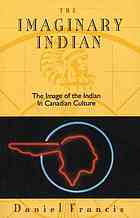Decolonizing Our Schools: Aboriginal Education in the Toronto District School Board
Report presented: September 30, 2010. Written by Aboriginal scholar Dr. Susan D. Dion, along with Krista Johnston and Dr. Carla Rice
In this report, the authors describe the work of the Urban Aboriginal Education Pilot Project (UAEPP) in Toronto District schools (TDSB) between April 2009 and September, 2010. It’s interesting to note that the goal of the UAEPP is to deliver education that is “worthy of our children and our ancestors” in a large, diverse urban context. Much of the report is based on the research findings of the Talking Stick Project.
The research confirms what Aboriginal parents, students, and educators already knew: institutions of formal schooling are failing to provide Aboriginal students with the educational environment and experiences that they need to achieve success. Urban Aboriginal students face a number of unique problems – they are unable to find suitable connection with cultural knowledge and do not see themselves represented in the curriculum. They are “encouraged to attend school in the spite of a long, negative, and hurtful relationship between Aboriginals and schooling.” School employees in urban settings face unique challenges in first of all recognizing Aboriginal student populations and then delivering programs when FN students are dispersed across a range of schools. Additionally, almost all educators lack the requisite knowledge and training for meaningfully teaching Aboriginal subject matter.
After interviewing and studying approximately 200 students, parents, teachers, administrators, community members, and other stakeholders the following four key findings were generated:
1. TDSB must recognize the importance of understanding and responding to Aboriginal students, youth, and their learning needs
- reject narrow definition of learning and success in the form grades in favour of a focus on well-being
2. Meaningful incorporation of Indigenous issues must be supported by providing thoughtful pro-d for teaching staff
- educators need access to expertise and training to understand Aboriginal culture and appreciate their role “inheritors of a colonial legacy.” This is part of the larger process of Decolonization and Indigenizing. Teachers must be prepared to take on this challenge and must be supported in their attempts to do so.
3. Schools must be transformed in order to Decolonize and Indigenize learning spaces
- Aboriginal students and Aboriginal education thrive in safe environments
4. Aboriginal Education must be supported at all levels and prioritized by establishing internal and external partnerships
Some of the many other recommendations:
- sustained funding is needed
- Aboriginal teachers need to be recruited
- Student well-being should be the center of educational approaches
- Aboriginal history and culture, including the history of colonialism, should be taught at multiple points in curriculum
- Board must require all principals to participate in decolonizing and indigenizing professional development
- Board must require all departments to demonstrate a plan for integrating Aboriginal Education
———– Decolonizing our Schools is as powerful an educational research report as one will ever read. The authors pull no punches and directly challenge the stereotypes and misguided thinking of those who declare that Indigenous education should be compartmentalized or marginalized because Aboriginals are a minority in their classrooms/schools. This report reminds us that were all the products of a colonial legacy that has ravaged Indigenous practices. In many ways, the report is a refreshing departure from the non-committal babble that emanates from school district research departments. Of course, it has to be…the topic is simply too significant for any lesser approach.
